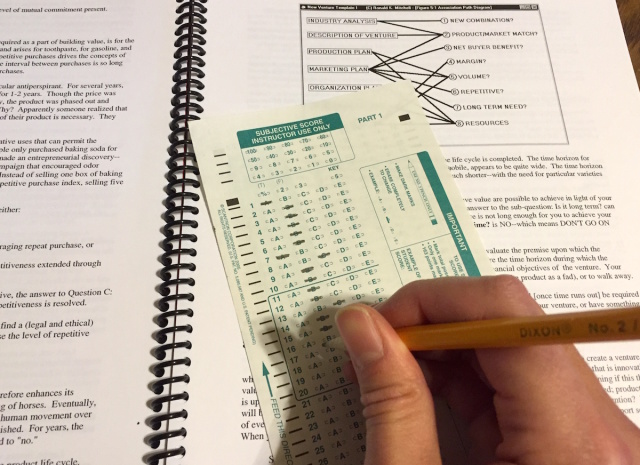
Student name: Pat Reader
Class: NonDoc.com remedial studies
Test: Mid-term education policy exam
Instructor: Dr. John Thompson
Question 1: Which of the following scenes is fiction?
A) A combat veteran takes over teaching for an elementary school class that had been taught by a string of substitute teachers. Through high expectations, project-based, hands-on learning and differentiated instruction, she turns around the school’s most disruptive student. The student’s lengthy misconduct file is ultimately expunged.
B) Even though the high-profile Success Academy’s “No Excuses” charter school chain claims it doesn’t “push out” students who make it more difficult to post test score increases, a Success principal’s “Got to Go” list is revealed by the New York Times. Another Success principal “told teachers not to automatically send annual re-enrollment forms home to certain students, because the school did not want those students to come back.’ A school lawyer allegedly described one misbehaving student’s withdrawal as a ‘win’ for the school.” When PBS News Hour asked whether kindergarten students are too young to be suspended, Success responded by revealing the confidential records of a disruptive 10-year-old. In doing so, it almost certainly violated the FERPA federal privacy law.
C) Students are enjoying a class, raising their hands to ask questions. The “No Excuses” teacher decides that the students’ responses are redundant and cuts off the discussion. It is the school’s policy to keep things moving according to the mandated schedule for covering the tested content. The teacher agrees, “That’s how we do it here.”
D) A teacher tells her class, “Students, please, raise your hand on a level zero, if you … ‘” Her coach interrupts, “Stop. ‘Please.’ … Drop the ‘please’,” when addressing students.
Answer key may surprise
The only scenario above which may seem believable is answer “A,” but that’s actually the fiction: It was an episode of The Simpsons. The other three scenarios occurred in so-called high-performing, high-poverty charter schools across the U.S.
Those schools often pretend that the real-world version of charismatic action figures who transform real-life Bart Simpsons can somehow systematically overcome the effects of poverty in urban schools. These choice schools typically don’t accept and retain the high-challenge students who attend traditional public schools, but they claim that they serve the “same” students as neighborhood schools. Sometimes, when charters have accepted more of the tougher-to-teach kids, they have often become unbelievably extreme in their behaviorist pedagogy.
As charter management organizations facilitated the mass closures of unionized schools, they’ve tried to teach somewhat larger numbers of students from generational poverty, but they have done so by putting their structured pedagogy on steroids. As Elizabeth Green explains in Building a Better Teacher, these schools helped create a culture of “right is right” where “right” is defined as correct standardized test answers. Perhaps “No Excuses” began as a step toward creating the discipline necessary for teaching and learning for mastery, but it became the schools’ “100 percent” principle where “at its heart the no-excuses idea actually represented an end, not a means.”
No-nonsense nurturing
“No Excuses” is now morphing into “No-Nonsense Nurturing.” Once fidgety children buy into its structure, No-Nonsense Nurturing supposedly “encourages teachers to lay off their stereotypical robotic voice over time. The hope is, eventually, students won’t need it.” Unfortunately, NPR reports that education experts worry “there’s too much emphasis on compliance, not engagement” and that the teacher who was told to drop the “please” voices a common complaint: “She feels like a robot at times.”
Except for The Simpsons episode where a teacher (assisted by her huge biceps and her two other noteworthy physical features) inspires Bart Simpson and builds on his strengths, the rest of the scenarios listed above seem incomprehensible.
What parent — when given the choice — would allow such behaviorism to be imposed on his or her child? What parent would want to choose a school where teachers are taught not to use the word “please” when talking with students? What kind of parent wants teachers to be encouraged to stifle discussion?
Clearly, corporate reformers — who often send their own kids to elite private schools where children are more than a test score — have decided these are the choices to be offered to poor families.
Extra credit
Finally, readers who incorrectly answered the above question should embrace “high expectations” and do “whatever it takes” to improve their performance. As a result, perhaps they should tackle this extra credit question:
True or False: Presidential candidate Ben Carson asked an elementary school assembly, “Who’s the worst student?” in their class. At least half-a-dozen kids pointed to a 10-year-old who turned red in the face.
Click this link for your answer, and don’t forget to study for the final.





















